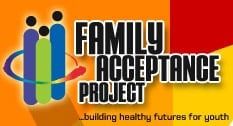A new study from the Family Acceptance Project examines the relationship between high levels of anti-LGBT bullying and increased health issues during young adulthood.
 The study demonstrates the importance of addressing and preventing anti-LGBT victimization at the structural or school level to reduce health disparities among LGBT young people. The study is published in the Journal of School Health, the journal of the American School Health Association.
The study demonstrates the importance of addressing and preventing anti-LGBT victimization at the structural or school level to reduce health disparities among LGBT young people. The study is published in the Journal of School Health, the journal of the American School Health Association.
· LGBT young adults who reported high levels of LGBT school victimization during adolescence were 5.6 times more likely to report having attempted suicide, 5.6 times more likely to report a suicide attempt that required medical care, 2.6 times more likely to report clinical levels of depression, and more than twice as likely to have been diagnosed with a sexually transmitted disease and to report risk for HIV infection, compared with peers who reported low levels of school victimization.
· Gay and bisexual males and transgender young adults reported higher levels of LGBT school victimization than lesbian and bisexual young women.
· LGBT young adults who reported lower levels of school victimization reported higher levels of self-esteem, life satisfaction and social integration compared with peers with higher levels of school victimization during adolescence.
Said Sean Cahill, Ph.D., Managing Director of Public Policy, Research and Community Health for Gay Men's Health Crisis (GMHC): “Once again, the Family Acceptance Project is helping us understand the social parameters of risk for LGBT youth by expanding on their work with families to show that school experiences also contribute to sexual health risk and risk for HIV among LGBT young adults. As the HIV epidemic continues to escalate among young gay and bisexual men and transgender women, and especially black gay youth, this study provides important evidence of the public health need for structural interventions and targeted anti-discrimination policies in our nation's schools to prevent HIV and other serious health problems.”



